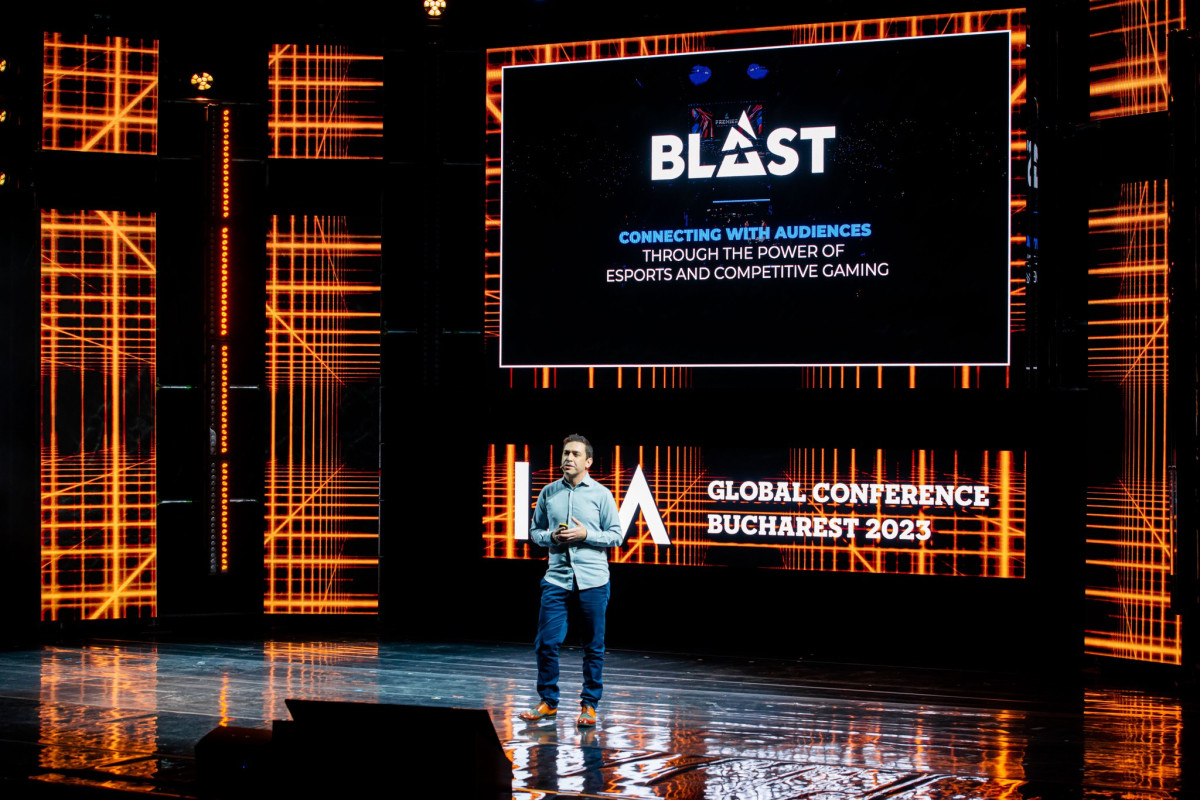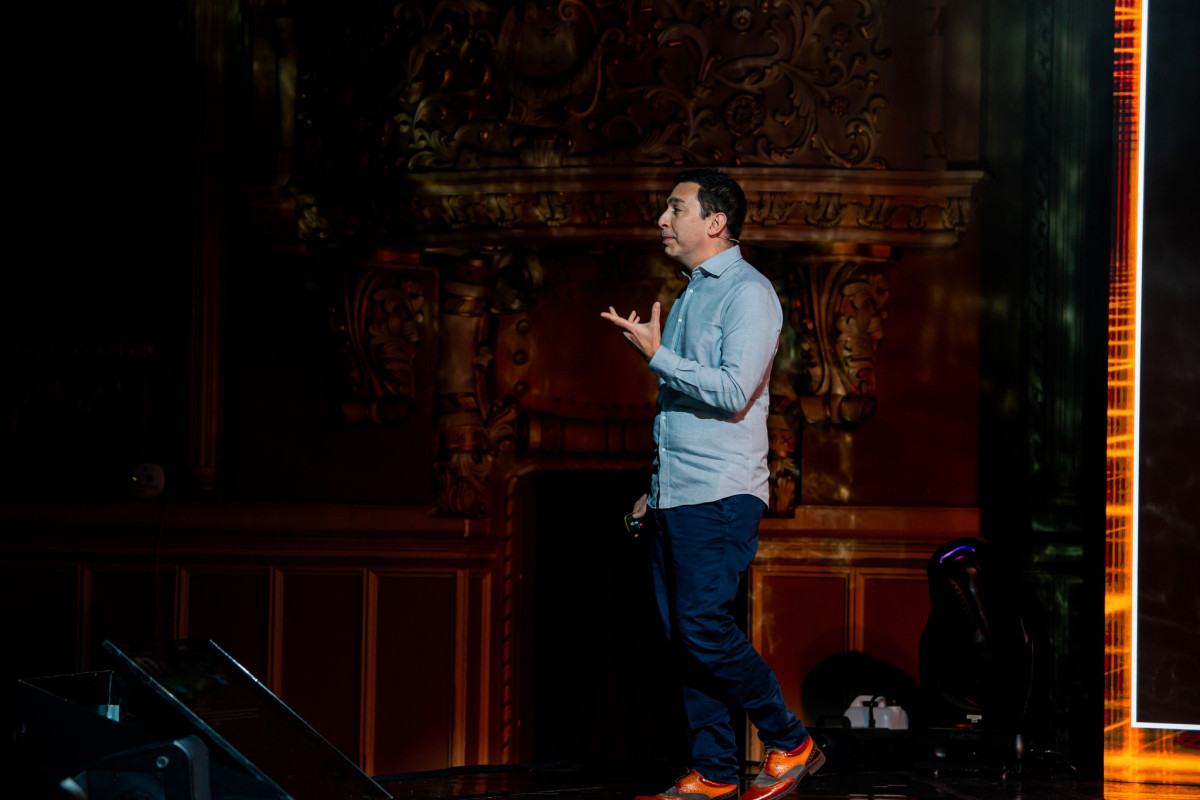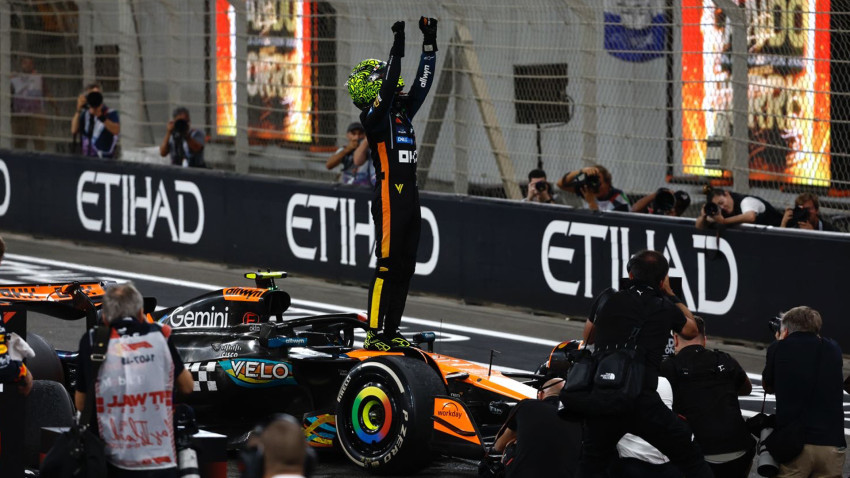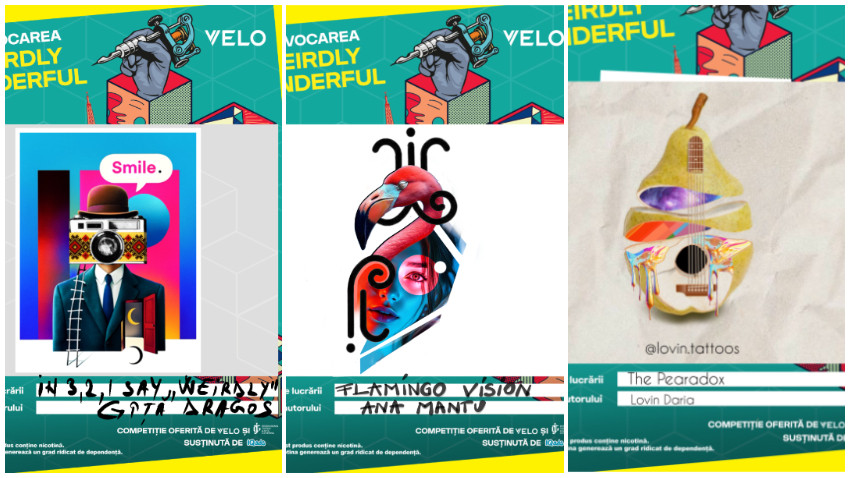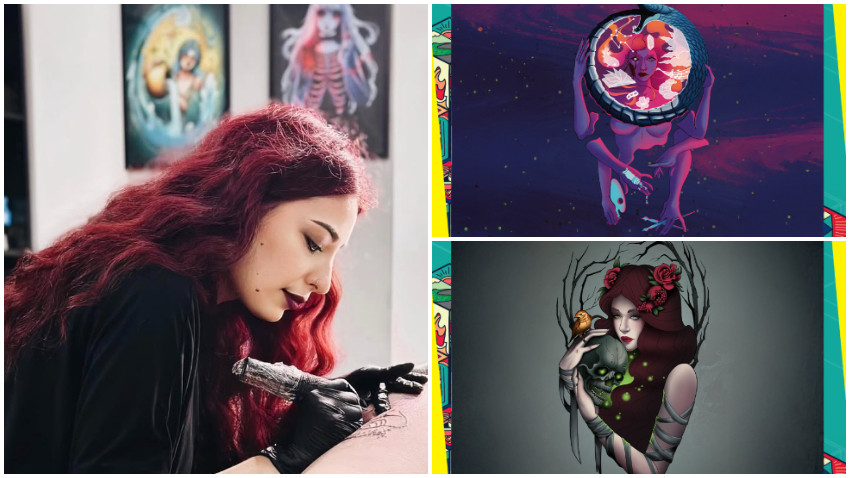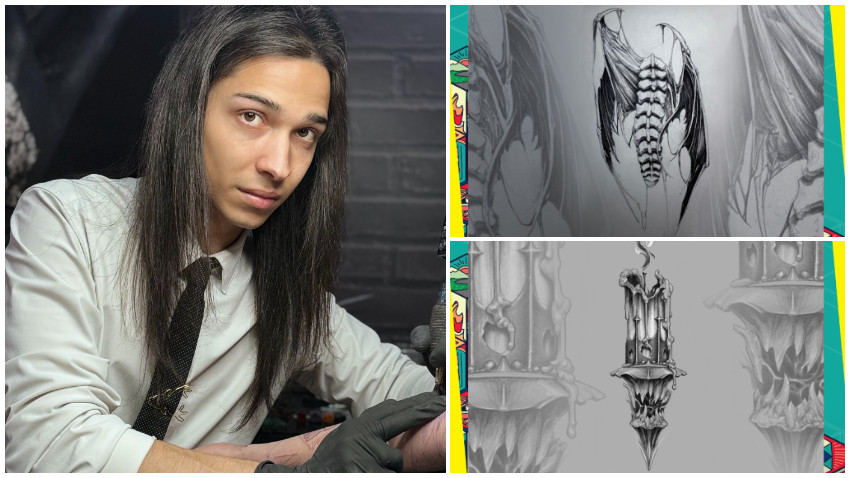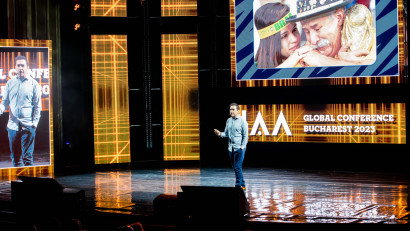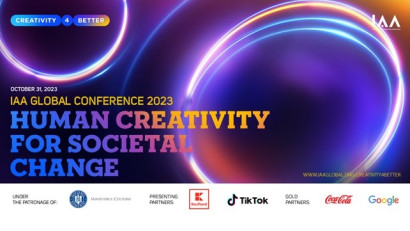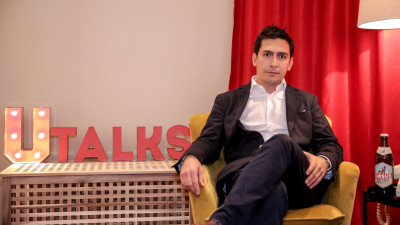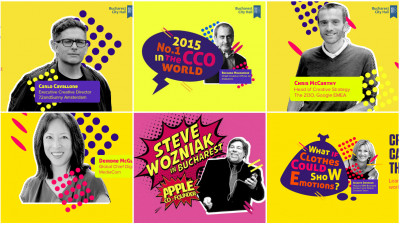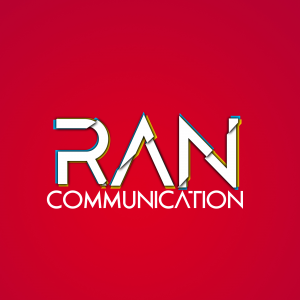We are in that age of entertainment where consumers are in absolute control. And yet, sometimes we end up getting lost in the neverending feeds. The challenge is to guide ourselves through the waves of entertainment and information, says Robbie Douek, CEO Blast, a global esports entertainment company. In his presentation, at the Creativity4Better global conference, organised by IAA Romania, he talked about the role of creativity in the gaming ecosystem.
"Now, in the gaming ecosystem, you can decide on the consumer's experience. You can make it the most authentic, real experience for that person at that time. I'd say that our role is to guide, prompt, drive, direct and then let the consumer decide", says Robbie.
Prior to BLAST, Robbie was Vice President Digital, EMEA, for The Walt Disney Company, and before that, he worked at Google based in Paris and London.
During a break at the conference, we talked with Robbie about the responsibility of the industry, the new generations of consumers and their relationship with technology.
The new era of entertainment
I think of entertainment as a fully immersive, interactive, cerebral experience that wasn't quite the case 10 years ago. There are two types of entertainment.
There is one where you want to touch and feel and play and interact, be part of that diversification. And there is another mode which is essentially the leanback mode, where you're basically getting flooded with information and your cerebral brain is making the decision on your behalf. So to coin the old term, you've got leanback and leanforward.
The gaming industry for me is much more about leanforward than leanback. If you go to a Taylor Swift concert, you're kind of in the middle, because you're leaning in in that content, but you're also feeling it and your passion and your body is driving that.
So there's a whole bunch of new experiences that are going into that entertainment factor that didn't existed 10 years ago. Everything that sits around you is so important. The darkness of the movie theatre, the smell of the arena, the lights, the sound, the smoke, that for me is entertainment.
A name for this chapter in entertainment
I'd say it's probably the middle ground between what was the sit-back mode to the sit-forward mode.
It's the you decide moment. Because you are in control. You decide what you want to watch, how you want to watch it, how engaged you want to be with that content. You could watch something on a screen and be completely disconnected on your phone or you could be completely immersed in that experience. You decide.
Your role
I love the creative industry more now than then. If I put on my past hat, I think that other people decided the creativity and the content that you watched and you just distributed it. Now, in the gaming ecosystem, you can decide on the consumer's experience. You can make it the most authentic, real experience for that person at that time.
I'd say that our role is to guide, prompt, drive, direct and then let the consumer decide.
The responsibility of the industry
I think it's the responsibility of publishers, gaming production businesses, global companies like ours, to give people that experience, but make sure that they're doing it in a way where they have some boundaries. I showcased during my presentation a campaign called Away From The Keyboard.
It's very important to be able to take that time away from the keyboard to work on your physical fitness. I think you can get lost in a day. You can get lost so easily in hours on social, and I don't think that's a good use of your time. You need to be more deliberate and specific about the things that you do and when you do them and be very much more structured in your approach.
I'm fascinated to watch the development of my teenagers and my kids, to see how they attack that problem, which is very different to how we attacked it when we were kids. You know, we would build our day around, oh, I need to watch this thing on TV at 8 o'clock at night, so therefore I've got to do my homework at 6 o'clock. They don't have that concept. There are no time slots. Everything is accessible. They want everything now, right? So I think it's our responsibility to teach the up-and-coming generations that the world is giving them an unbelievable opportunity, but it needs to be done with some guardrails on it.
Gen Z
They are fabulously honest. They are tricky customers because they know what they want, but they also don't know what they want, so it's very difficult to market to them. But they're very quick to tell you what they don't like. So that's quite helpful, because if you're going wrong, you're told very quickly you're going wrong.
I think they have more accessible income than really any other generation that we've had. But we have to be a bit careful with these individuals, we have to just be clever about in the way that we market to them. They just don't want to be marketed to.
How do you communicate with them
The old word of authenticity is still there. That has to happen. And passion. Passion is the most important thing.
Here's the interesting thing. Consumers are today engaging in a sector where they are most obsessed, but then they are distracted with a bunch of noise. But when they're in that obsessed arena, I think you've got a great chance to reach them with really pertinent stuff that means something to them.
That's why they want to wear that particular merch or that collab or aspire to have that brand. I mean, half of these brands I've never even heard of, but it's consumer first.
The role of creativity
I'm blown away by the creativity that exists in our business, in my business, in the community that we work within. It suffices to be part of a show or a broadcast, and you can see how these experts are integrating technology into the production, so that automation is becoming key in that sector.
The broadcast is done in a more creative way, the content is produced with custom graphics and user-generated stuff. It's fascinating to watch that. So I think that the role of creativity within entertainment has never, ever been higher.
But also, I think the barrier is really low. You've got this really interesting environment where there's a bunch of stuff being shoved in your direction, which is entertainment per se, because you're just being mindlessly driven with content all the time. And some of that is very low-bar.
But I think you've got some really beautiful, incredible user cases of amazing content being produced by some of the best minds in the world.
The biggest challenges in your field
Consumers have so much access to content, to a wide range of activities that you need to teach these individuals when is the right moment that they engage and when should they be doing something else.
And I think that is hard. I don't know that there's an off switch. There is no off switch. And so, unless you tell your teenage kids that they need to go to sleep and stop watching their phone, they'll sit on their phone for 10 hours, right?
I don't think this youth base is being efficient with its time. I don't know that we were any better 20 years ago, by the way. I really don't, because I think that we probably went and did a bunch of stuff and wasted a bunch of time because we didn't have access to Google Maps and other information that meant that we could win time.
We spent hours lost. We developed a survival mode. What will be their survival mode? I don't know. But you know what I think this generation has? It's ingenuity that I don't know that we have. And that's very interesting. That's hugely creative. I think that's going to power the new industry going forward.
Trends in esports
There is a move towards a better and a richer consumer experience in esports today by virtue of the work that we're doing in streaming, creating a destination which brings it directly to the consumer.
The industry is growing overall in size. That's exciting. I'm less excited by averageness, if that's a word. I think there is a world where there is a bunch of pretty average content being consumed or passed off as something which is premium.
We're at a period of change in esports. There's been a lot of focus on how big the audiences are. And I think that now is the moment of reckoning. Brands are going to engage in a meaningful way in this sector and start spending money on communicating with the audiences.



